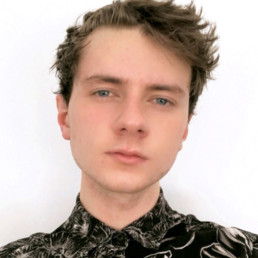
Written by George Hayward
(he/him), English Teacher in East London, LGBTQ+ Advocate.
During my time as a student, I often felt a lack of inclusivity in the curriculum I was studying. Reading great classics and beloved page turners such as To Kill A Mockingbird and Lord of the Flies, I found myself wondering why none of these stories were about people like me. When I reached university, I discovered Queer Theory and I was mindblown. Not only were there stories about people like me, but there were academics studying and rereading the texts I grew up with and held dear through a lens of queer understanding. One such text was Robert Louis Stevenson’s The Strange Case of Dr Jekyll and Mr Hyde. I had the opportunity to study these readings during my time at university, so when the opportunity arose to deliver a lecture on it at my school in East London, I was overjoyed. While planning the session, I drew upon the essays and research I had from my undergraduate degree, revisiting the work of prominent theorists such as Elaine Showalter, Judith Butler, Eve Sedgwick and Michel Focault. The most extensive in relation to Jekyll and Hyde being Showalter’s paper Dr Jekyll’s closet.
Queer Theory aims in principle to challenge heteronormativity: the assumption that heterosexuality is the default state of being. It digs into the structures of understanding within art, literature and society and dismantles them. This is an important area of theory as it provides visibility. It allows students of all backgrounds and identities to see themselves in the curriculum they study. It shows them that they are seen and that different people exist. There is a lot of talk about ‘acceptance’ of LGBTQ+ peoples and while acceptance is a great first step, what we need is celebration and understanding. The teaching of Queer Theory and narratives provides this understanding and promotes the celebration of all our students and their identities. It promotes a culture of inclusive allyship and support, where students, staff and their families from all walks of life can lift each other up and be their true authentic selves. All our students deserve to feel they are lifted up in a space where they are safe and important.
The session was received well by staff and students alike. I was able to offer the session twice, firstly to the staff of the English department and secondly to our year 10 students. Staff were engaged with the topic and felt that Queer Theory provides another framework of understanding to utilise in our classrooms. It provides another tool in our analysis toolbox to dig deep into language and encourage our students to be critical thinkers. Similarly, students in my year 10 class that attended the session found the subject refreshing and interesting. I found that while Queer Theory and readings may seem oblique to some, students and staff alike were able to engage with the topic and take away some food for thought. The opportunity to deliver the session was incredibly fulfilling for me on a personal level and it is my true belief that the teaching of these theoretical frameworks is of benefit to every student. I believe it is crucial to foster this culture of inclusivity and celebration for all our learners and I hope that Queer Theory will be a valuable step on this journey.

